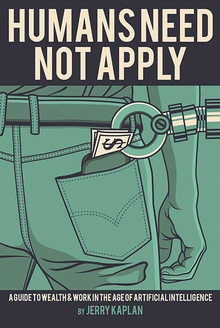Biotechnology
WARNING
You are viewing an older version of the Yalebooks website. Please visit out new website with more updated information and a better user experience: https://www.yalebooks.com
The University Industrial Complex
Martin Kenney
"Kenney’s work is the first major effort to provide a detailed analysis of the birth of the new industrial field of biotechnology and its impact on universities. . . . Kenney’s book abounds in rich description and valuable conjectures. It also provides important insights into the structural and institutional aspects of the biotechnological revolution. It is informed by an extensive literature including reports form the financial community, university-industry contracts, trade journals, personal interviews, and company prospectuses."—Sheldon Krimsky, American Scientist
"A fine description of a vital new field. It deserves wide readership."—David Silbert and Duncan Newhauser, New England Journal of Medicine
"The author raises important questions about whether the character of this university-industrial complex adequately allows for the kind of public discussion and participation necessary to insure consideration of social, economic, and moral issues in the development of this important new technology."—Harvard Educational Review
"Bears upon questions of fundamental importance to science, academia, and society and provides valuable documentation of the magnitude of the actions already taken and the multitude of participants involved."—Robert L. Sinsheimer, Nature
"A careful and penetrating piece of scholarship that makes an important contribution to the study of social and economic institutions."—Sheldon Krimsky, Tufts University
"Here is a dispassionate discussion of biotechnology—its beginnings and where it may lead. Dr. Kenney's analysis of the interrelations between corporate and university forces is thoughtful and comprehensive. The book, which may serve as a reference text, should provide the basis for the socioeconomic debate that will inevitably intensify with time."—Liebe F. Cavalieri, Sloan-Kettering Institute
"With this scholarly study [Kenney] becomes an authoritative, cautionary voice on the close ties binding many universities to the world's largest corporations and how this 'university-industrial complex' will affect educational institutions, agriculture, our very lives."—Publishers Weekly
"Draw[s] together a great deal of information about the establishment, financing and management of the new biotechnology companies. . . . Bears upon questions of fundamental importance to science, academia and society, and provides valuable documentation of the magnitude of the actions already taken and the multitude of participants involved."—Robert L. Sinsheimer, Nature
"Biotechnology contains much important information and can be read profitably by anyone who is at least peripherally acquainted with the biotechnology industry."—Richard Novick, Los Angeles Daily Journal
"A fine description of a vital new field. It deserves wide readership."—David Silbert & Duncan Neuhauser, Ph.D., New England Journal of Medicine
"This first 'history of biotechnology' is strong in accumulating specific cases and in demonstrating how scientists' 'free' choices have been made within a framework set by university, government, and capital."—Philip J. Pauly, Journal of the History of Biology
"Probably never before has the emergence of a technology-based new industry been so exhaustive covered—while still in its gestation period. . . . An excellent and very readable review."—S. Allen Heininger, Chemical and Engineering News
"This is an outstanding book that should be read by everyone involved in university science and administration and by all students and adults interested in the future development of basic scientific research and its orderly utilization by the public, including molecular biologists thinking of jumping into the private-sector marketplace. It is the ‘first serious analysis focusing on the actual mechanisms of’ the development of the entire biotechnology industry. . . . The book is thoroughly documented, well organized, and very readable. . . . I am confident that there are some surprises in store here for even those people who have been intimately involved in this field."—Science Books & Films
"For those interested in seeing how the industry got to where it is via the academic route and whether professor-founded companies can make a go of it, the book makes a good read."—Agricultural Genetics Report
"Kenney's work is the first major effort to provide a detailed analysis of the birth of the new industrial field of biotechnology and its impact on universities. . . . Kenney's book abounds in rich description and valuable conjectures. It also provides important insights into the structural and institutional aspects of the biotechnological revolution. It is informed by an extensive literature including reports from the financial community, university-industry contracts, trade journals, personal interviews, and company prospectuses."—Sheldon Krimsky, American Scientist
"Valuable and well worth reading."—Eric Holtzman, ACADEME
"This first 'history of biotechnology' is strong in accumulating specific cases and in demonstrating how scientists' 'free' choices have been made within a framework set by university, government, and capital."—Philip J. Pauly, Journal of the History of Biology
"The author raises important questions about whether the character of this university-industrial complex adequately allows for the kind of public discussion and participation necessary to insure consideration of social, economic, and moral issues in the development of this important new technology."—Harvard Educational Review
"Kenney draws on a range of material, some scholarly, some journalistic, to characterize an important and complex phenomenon. . . . A serious and provocative study."—Edward Yoxen, ISIS
"Kenney's major concern in this lucid and well-argued book is the disruptive influence that the rise of the new biological technologies has had both on traditional scholarly interactions within universities and on the roles of universities and their faculties in the wider society. . . . [A] very important book."—Stuart A. Newman, BioScience
"Biotechnology offers us one of the first and most detailed descriptive overviews of the parallel linkages that biotechnology has forged between basic and applied research and between universities and commercial enterprises. A compendium of useful information. An excellent analysis of the developmental stages of small 'start-up' biotechnology firms, and their relationships with venture capitalists and grant pharmaceutical and chemical corporations."—Bruce Jennings, Politics and Life Sciences
"It makes clear the contours of this young and extraordinary industry and its cast of characters. A lot of ground is covered, and the author's experience is valuable."—John E. Calfee, Journal of Economic Literature
"An informed, often well-written criticism of a contemporary event. . . . [This book] will be extremely useful to students of higher education who want to understand the industry structure or who want to find summaries of the specific arrangements that have been negotiated."—Kenneth P. Ruscio, Journal of Higher Education
"One of the most troublesome issues emerging from the rapid development of biotechnology is the transformation of the traditional university-industry relationship. To date, no author more thoroughly and succinctly examines the meaning of these changes than Martin Kenney. . . . [This] book is a major contribution to the debate over the social impacts of biotechnology."—Robert H. Blank, Journal of Social and Biological Structures
Publication Date: September 10, 1988








